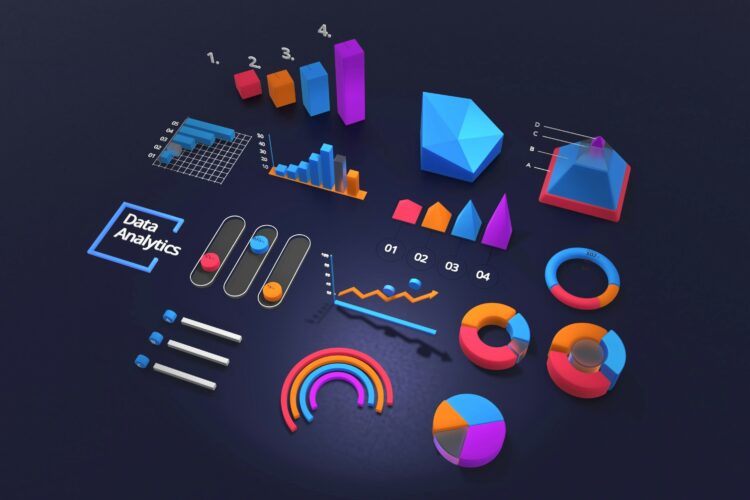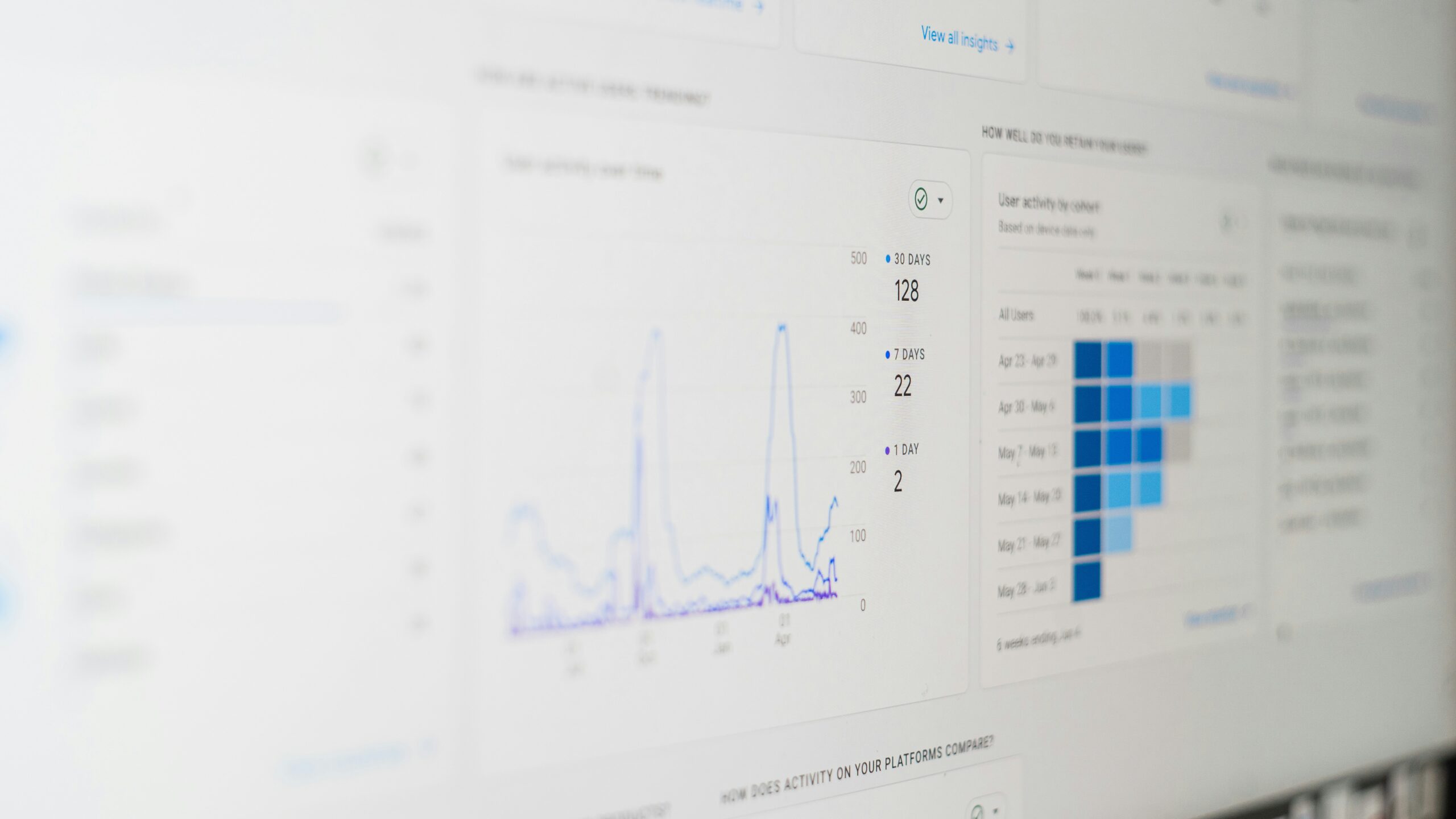
Are you finding it challenging to make sense of your marketing data? AI marketing analytics tools are here to revolutionize how you approach business performance. In this article, we’ll explore how these cutting-edge tools analyze campaign data, optimize strategies, and improve user experiences. You’ll also learn about top AI tools that can elevate your marketing efforts. By the end, you’ll clearly understand how AI-driven analytics can enhance your marketing success and deliver measurable business results.
Key Takeaways
- AI marketing analytics tools analyze data to provide actionable insights for improved business performance.
- These tools offer features like data visualization, real-time tracking, and predictive analytics.
- AI-powered analytics optimize campaigns, increase ROI, enhance customer engagement, and streamline marketing operations.
- When choosing a tool, consider web analytics capabilities, dashboard functionality, and integration with existing platforms.
Understanding AI Marketing Analytics Tools

AI-driven marketing analytics solutions use data and natural language processing to uncover actionable insights, helping businesses improve their performance. These tools employ machine learning algorithms to analyze complex marketing data, offering valuable recommendations for refining strategies and enhancing outcomes. To fully understand their potential, exploring their functions and how they utilize data to improve marketing strategies is essential.
Defining AI Marketing Analytics Tools
These advanced solutions use artificial intelligence to analyze marketing data and deliver actionable insights. Identifying patterns in large datasets empowers marketers to make informed, data-driven decisions. Additionally, some tools provide capabilities like campaign analysis and customer segmentation, ensuring businesses stay competitive in an ever-evolving landscape.
The Role of Data in Marketing Performance
Data is the backbone of effective marketing, offering insights that shape strategies and optimize performance. Advanced analytics tools consolidate data from sources like social media, search trends, and customer touchpoints to provide a comprehensive view of campaigns. By analyzing this information, businesses can allocate resources wisely and improve their overall marketing effectiveness. Key Steps in Data-Driven Marketing:
- Collect information from diverse sources.
- Use AI-powered tools to analyze and interpret the data.
- Extract actionable insights to guide decision-making.
- Optimize campaigns based on findings.
- Continuously measure and refine performance.
Key Features of Effective AI Marketing Analytics Tools

Advanced marketing analytics solutions offer essential features that drive better business outcomes. These include enhanced data visualization, real-time tracking, customer segmentation, predictive analytics, and seamless integration with existing platforms. By leveraging these capabilities, businesses can gain deeper insights, optimize strategies, and improve overall marketing performance.
Advanced-Data Visualization Capabilities
Data visualization simplifies complex data by presenting it in clear, interactive formats such as charts, graphs, and dashboards. These tools transform vast amounts of information into easily understandable visuals, helping marketers identify trends and opportunities. They also comply with data protection regulations and include features like integrated knowledge bases for a more user-friendly experience.
Real-Time Performance Tracking
Tracking marketing performance in real-time allows businesses to respond quickly to customer behavior and campaign dynamics. These tools deliver instant insights into engagement and performance, enabling marketers to adjust quickly. Key benefits include immediate feedback, rapid optimization, and automated alerts to highlight critical changes in campaign effectiveness.
- Real-time data collection: Gain immediate insights into customer behavior.
- Instant performance metrics: Quickly identify successful strategies.
- Automated alerts: Ensure prompt responses to performance shifts.
Customer Segmentation and Targeting
Customer segmentation is a vital function of AI-driven analytics, helping businesses target their audience more effectively. These tools use predictive analytics to group customers based on behavior, preferences, and interactions. By tailoring strategies to specific segments, marketers can enhance campaign performance and improve engagement, increasing customer satisfaction and loyalty.
Predictive Analytics for Future Trends
Predictive analytics allows businesses to forecast trends and behaviors by analyzing historical data. These tools use advanced algorithms to predict market shifts, customer needs, and campaign outcomes. By leveraging this foresight, companies can stay ahead of competitors, anticipate changes, and adjust strategies for greater impact.
Integration With Existing Marketing Platforms
Seamless integration with existing marketing tools ensures a comprehensive view of performance across all channels. These solutions consolidate data from multiple systems, enabling marketers to streamline workflows and gain holistic insights. Integration supports better decision-making and fosters a more cohesive marketing strategy.
Top AI Marketing Analytics Tools for Enhanced Business Performance

AI-powered marketing tools offer innovative solutions to improve business performance by optimizing campaigns, forecasting trends, and segmenting audiences. Tools like Google Analytics, HubSpot Marketing Analytics, Adobe Analytics, IBM Watson Marketing, and Mixpanel use advanced features to refine social media strategies, analyze customer behavior, and provide actionable insights that help businesses make smarter, data-driven decisions.
Tool 1: Google Analytics With AI Features
Google Analytics’ AI-driven features enhance brand awareness and measure customer lifetime value. The platform uses advanced language processing to analyze user behavior across channels, providing detailed insights into social media performance and audience engagement. Integrating seamlessly with other tools helps marketers refine their strategies and achieve better outcomes.
Tool 2: HubSpot Marketing Analytics
HubSpot Marketing Analytics provides businesses with comprehensive data analysis and collaboration features. It offers tools like heat map visualizations to track website user behavior, enabling teams to share insights and refine marketing efforts across channels. Its user-friendly interface makes it a reliable choice for improving marketing effectiveness.
Tool 3: Adobe Analytics
Adobe Analytics provides powerful tools for brainstorming and analyzing marketing data. This platform offers advanced graphics capabilities, allowing marketers to visualize customer relationship management insights effectively. Adobe Analytics integrates personal data protection measures, ensuring compliance with privacy regulations while delivering actionable insights for improved business performance.
Tool 4: IBM Watson Marketing
IBM Watson Marketing specializes in enhancing customer engagement through AI-driven analysis. The platform’s predictive analytics and AI-powered content analysis enable businesses to improve email marketing effectiveness and refine targeting strategies. Its usability features simplify complex data insights, making it an excellent choice for marketers.
Tool 5: Mixpanel
Mixpanel offers robust tools for analyzing user behavior and optimizing marketing campaigns. With features like cohort analysis and funnel visualization, businesses can identify areas for improvement and enhance customer engagement. Its user-friendly interface ensures accurate data reporting, empowering marketers to make informed decisions.
Key Features:
- Cohort analysis to segment user groups effectively.
- Funnel visualization to track campaign performance.
- Simplified reporting through an intuitive interface.
How AI Marketing Analytics Tools Drive Business Improvements

AI-powered marketing tools enhance business performance by optimizing campaigns, boosting ROI, increasing customer engagement, and improving operational efficiency. By analyzing customer experience data and ad performance, these tools provide actionable insights that help businesses refine their strategies and achieve better results.
Optimizing Marketing Campaigns Through Insights
AI tools improve campaign effectiveness by offering insights for personalization and content strategy. By analyzing customer feedback, competitor data, and overall campaign performance, businesses can make data-informed decisions to optimize their marketing efforts and reach target audiences more effectively.
Increasing ROI With Data-Driven Decisions
Data-driven decision-making powered by AI analytics tools helps businesses maximize return on investment. These tools evaluate website performance, keyword optimization, and email marketing campaigns to provide actionable recommendations. Leveraging market research data allows companies to allocate resources efficiently and improve overall productivity.
Enhancing Customer Engagement and Retention
AI-driven analytics tools improve customer engagement by providing deep insights into behavior and preferences. These tools enable businesses to analyze customer interactions, optimize advertising strategies, and create highly personalized campaigns. By integrating various data sources, marketers can gain a complete view of customer engagement metrics, such as click-through rates and conversion rates, to drive loyalty and long-term value.
Streamlining Marketing Operations
AI tools enhance marketing operations by automating data collection, analysis, and reporting. These systems provide real-time insights into ad performance and customer feedback while improving the relevance of marketing messages. Automation allows marketing teams to focus on strategic and creative tasks, reducing manual workload and driving overall growth.
Conclusion
AI marketing analytics tools are essential for businesses seeking to enhance their performance in today’s data-driven landscape. These tools leverage advanced technologies to provide actionable insights, optimize campaigns, and drive data-informed decision-making across various aspects of marketing. By offering features such as advanced data visualization, real-time tracking, and predictive analytics, AI-powered tools enable businesses of all sizes to streamline operations, increase ROI, and improve customer engagement. As demonstrated by successful case studies, implementing these tools can lead to transformative improvements in marketing strategies, sales performance, and overall business success
Frequently Asked Questions
What Are the Benefits of Using AI in Marketing Analytics?
AI in marketing analytics offers numerous benefits for businesses. By leveraging machine learning algorithms, companies can analyze vast amounts of marketing data rapidly, uncovering insights that would be difficult to find manually. This advanced marketing data analysis enables businesses to develop more effective, data-driven strategies that improve performance and ROI.
How Do AI Marketing Analytics Tools Improve Performance?
AI marketing analytics tools improve performance by leveraging advanced technologies like exploratory data analysis and drag-and-drop interfaces to optimize campaigns. These tools analyze vast amounts of data from various sources, including APIs, to provide actionable insights. By automating complex analyses and offering intuitive visualizations, AI-powered tools enable marketers to make data-driven decisions quickly, resulting in more effective campaigns and improved business performance.
Are AI Analytics Tools Suitable for Small Businesses?
AI analytics tools are suitable for small businesses, offering scalable solutions to enhance marketing efforts. These tools often feature user-friendly interfaces and tutorials, making them accessible even for those without extensive technical expertise. Small businesses can leverage marketing automation and virtual assistant capabilities to streamline operations and gain insights comparable to those of larger enterprises. By utilizing algorithms tailored to their specific needs, small businesses can compete more effectively in their respective markets:
What to Consider When Choosing an AI Marketing Analytics Tool?
When choosing an AI marketing analytics tool, businesses should consider web analytics capabilities, dashboard functionality, and integration with platforms like Hootsuite. The tool’s ability to analyze emotion in customer interactions can provide valuable insights for marketing strategies. Effective analytics tools offer comprehensive dashboards that clearly present data and allow easy customization. Companies should evaluate the tool’s compatibility with their current marketing stack and its ability to provide actionable insights that drive business performance:

Comments